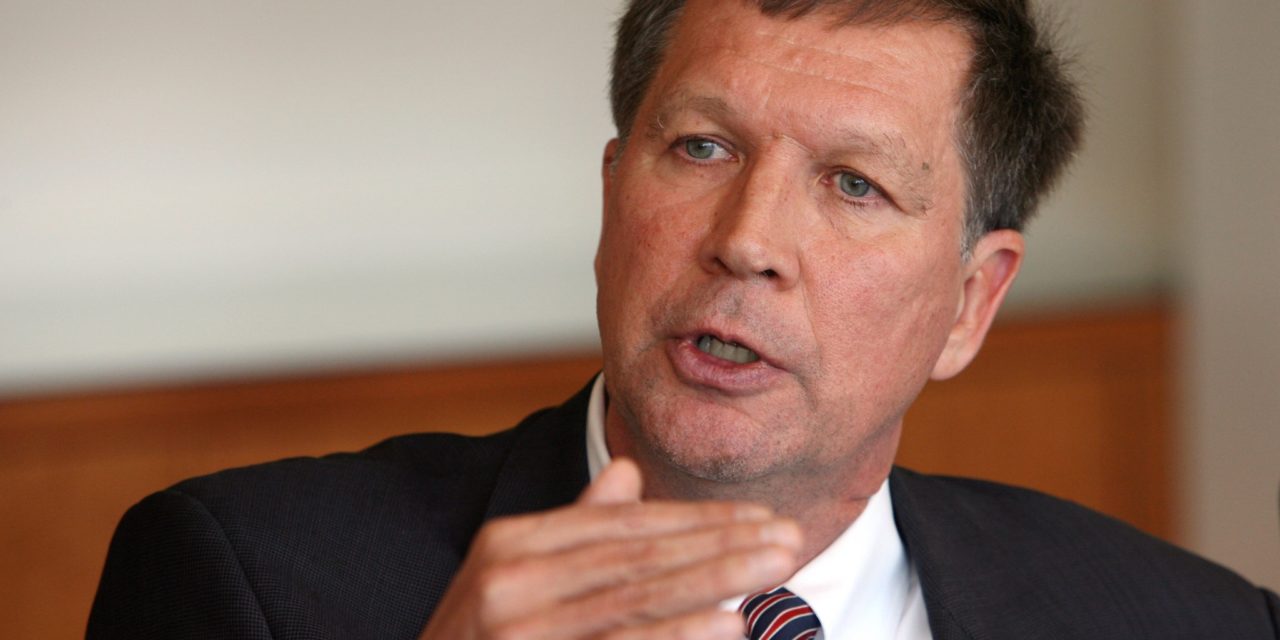ONUMBA.COM, USA –It was a cliffhanger, but that was enough.
Ohio Governor and Republican Presidential Candidate John Kasich barely made the roster of candidates qualified to participate in the first GOP primary debate in Cleveland this week.
In that gathering, expect the controversial matter of Obamacare to feature a lot.
There, the mugwump governor would have a chance to explain to his fellow Republicans why he supported Obamacare. Kasich, though, always points out that even though he implemented the Medicaid expansion portion of the health care law, he is generally opposed to Obamacare.
A shoal of candidates are running for the White House on the Republican side, 17 of them to be precise. But only the top 10 candidates will take part in the first crucial debate. The elite 10 candidates were reportedly determined based on their performance in recent key polls or hodgepodge of selected polls.
Kasich was late in entering the crowded race, which explains in part why he is sort of playing catch. At the same time, some actually see his late entrance into the race differently, expressing the view that it immensely helped generate free buzz for him at a time he needed to have his name in the news as the jockeying for a spot in the top 10 upper crust of candidates got intense.
The debate scheduled for August 6 will take place in Kasich’s Buckeye home state.
For a while, Kasich dangled precariously in the 10th and last spot, spending gobs of money on campaign ads in early primary states hoping to make the final cut even as Texas Governor Rick Perry trailed uncomfortably closely in the 11th place.
The Texas governor, who is hoping that his run for the White House this time around will be a lot different from the last time that turned into an epic disaster after he froze up and unable to remember the names of federal cabinet agencies he was proposing to eliminate.
Kasich spoke of the importance of being part of the debate.
“I’d like to be there,” said Kasich, adding, “It’s an important part of my political future. We’ll just have to wait and see how the poll run out.”
That’s now water under the bridge. Now Kasich needs to focus on coming up with a plan for how to contain the stone throwing and insult lobbing Donald Trump in case the frontrunner starts to unleash attacks against him.
Meanwhile, the fact that Kasich got into the race late is viewed differently by political observers. Some have argued that Kasich gained priceless media exposure by delaying getting into the race, but it was also clear that he lost some crucial chances to get his name out there early enough as some of his opponents did. That for sure set him back a bit, if only looking at it through the lens of catching up with some of the heavyweights in the race, such as former Florida Governor Jeb Bush, New Jersey Governor Chris Christie, U.S. Senator from Florida Marco Rubio and a few others, who came into the contest enjoying vast name recognition and deeper national profile.
The governor himself acknowledged that drawback, but explained why it took him long to enter the race, saying he was focusing on his job as governor while others were “traveling around the country making a name for themselves.”
At the same time, Kasich noted that his campaign would have continued regardless of whether he made the cut for the Cleveland debate or not.
As for Kasich’s support for Medicaid expansion, he fiercely stands by his decision, saying “expanding Medicaid saves money and morally helps people have a great life or a better life.”
His words, “Every once in a while, we help people get out of a ditch.”
Apparently, many of Kasich’s Republican friends in the Ohio legislature were oblivious to these cavernous “ditches” with thousands of Ohioans excruciatingly falling inside them.
Needless to say, House Republicans were fiercely opposed to Medicaid expansion for fear of ballooning the country’s deficit and growing the national debt, among other boogieman stoked trepidation that helped feed their rabid disdain for the governor’s health care policy. Kasich, who, of course begged to differ with all of that, was able to push through his Medicaid expansion initiative relying on support from Democratic lawmakers even as House Republican leadership frowned at the strange alliance even threatened to file a lawsuit against the governor.







